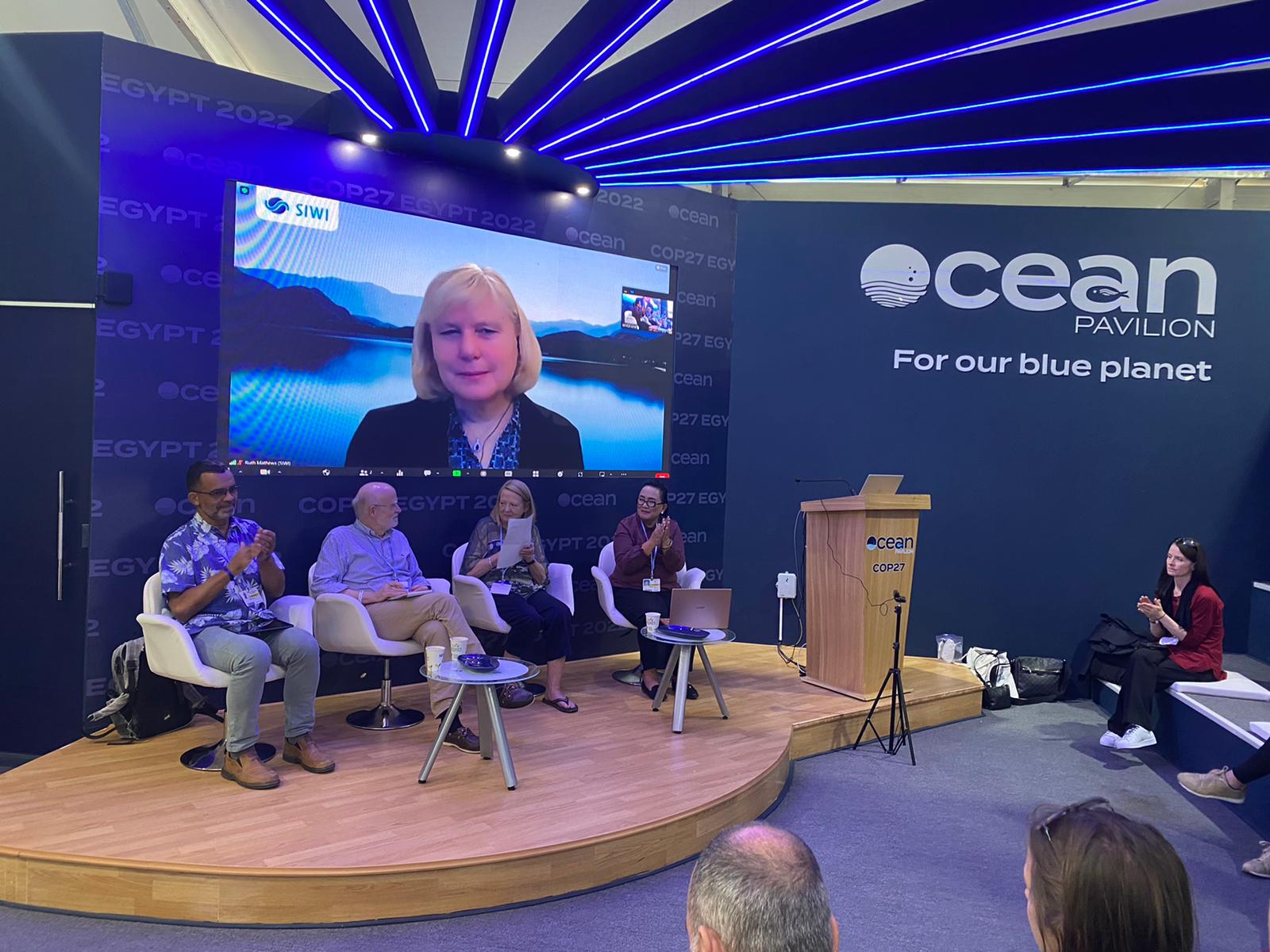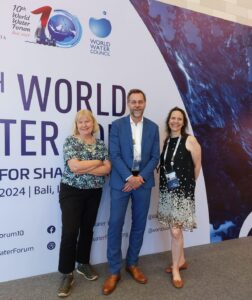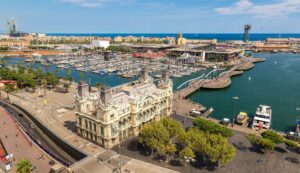Mainstreaming source-to-to-sea thinking into climate action
SIWI’s source-to-sea team, Ruth Mathews and José Pablo Murillo, are heading to Sharm el Sheikh to participate in the UNFCCC COP27. As they prepared for departure, we asked them what they are hoping for at the conference.
Why are you going to COP 27?
Ruth: This last year has shown us ever more clearly that water is at the centre of climate change. This is evident both in terms of the impacts that arise from changes to the water cycle caused by global warming and the loss of natural ecosystems as well the mounting proof that water is at the center of climate solutions. As a senior water resources expert, I feel it is imperative that I bring my knowledge and experience to the discussions in Sharm el Sheikh. We must take clear, decisive action now – we have no time to lose.
My work at SIWI has focused on developing, testing, and implementing source-to-sea management that emphasizes the connections between land, freshwater, coastal and marine ecosystems. This source-to-to-sea thinking must be mainstreamed into climate action. This will foster holistic analyses of system relationships and inclusive processes that are important for building climate resilience and mitigation. We must make sure that decisions are participatory and take into account diverse perspectives to ensure that climate action results in balanced system-wide benefits and long-term resilience.
José: We are witnessing the effects of an aggravating climate crisis around the world. For example, Costa Rica, my home country, is being seriously impacted by more severe storms and the resulting floods and landslides. It is estimated that between 2005 and 2022, the impacts of climate change have cost the country around 1646 million USD in damages to infrastructure, not to mention the loss of life and livelihoods that sometimes accompany this. This has made climate change a very tangible concern for me and has motivated me to be involved in climate work.
Holistic, cross-sectoral approaches such as source-to-sea management are necessary to guide the ambitious and just climate action we need. By highlighting the upstream and downstream linkages between ecosystems from source to sea and fostering inclusive participatory processes we can safeguard nature-based climate action from maladaptation and unintended consequences while emphasizing its co-benefits.
Follow SIWI to COP27
To share new knowledge about water and climate, SIWI will be taking active part in the global climate conference COP27 between 6 and 18 November. Join our programme online to learn about a promising new generation of climate solutions.
SIWI at COP“We must make sure that decisions are participatory and take into account diverse perspectives to ensure that climate action results in balanced system-wide benefits and long-term resilience.”
What will you be doing there?
Ruth: I am very fortunate to be speaking at the Ocean Pavilion, the MPGCA Water Action Event, the Water Pavilion, and the UNDP Pavilion. My message in these events is going to be clear – holistic source-to-sea governance safeguards climate action. Our fragmented governance, the tendency to work in silos, the lack of coordination between sectors, the neglect of the upstream and downstream perspectives has all contributed to the climate challenges we are facing now and are stunting our progress towards a climate secure world. It is no longer tenable to address climate change in bits and pieces. We must recognize the interconnectedness between land, freshwater, coastal and marine ecosystems, and their related social and economic systems and make rapid progress towards holistic governance and inclusive decisions. Our activities and investments must be assessed for their impacts – positive or negative – on the entire water cycle to unleash the full mitigation and adaptation potential of water-related climate solutions.
José: I will be meeting with friends and partners of the Action Platform for Source-to-Sea Management to discuss how we can accelerate the uptake of source-to-sea thinking in climate plans, strategies and projects. Mainstreaming source-to-sea perspectives will lead to the linkages between land, freshwater, coastal and marine ecosystems being appropriately considered as well as fostering inclusive processes for coordinated climate action. Additionally, I will be participating in events at different pavilions to learn more about how we can promote ambitious climate change mitigation and adaptation through nature-based solutions and by listening to local knowledge.
“I hope that a clearer picture emerges on the finance of climate action but also loss and damage as we continue witnessing the effects of a deepening climate crisis.”
What do you hope will happen at COP27?
Ruth: I hope the climate negotiators take the bold steps necessary to keep planet warming to no more than 1.5°C and make the commitment to bring it down below that over the long-term. To do this, we all must be willing to make the uncomfortable changes that are needed, and we must empower our politicians with the political will to follow through on the commitments that have been made. Water will need to be in the center of this climate action, and we must approach the climate challenges we face holistically, with all voices being heard. I hope that the momentum from COP26 on recognizing the tremendous benefits that can come from working with nature as an ally in tackling the climate crisis snowballs into accelerated adoption of holistic management from source to sea for the benefit of people and the planet.
José: My hope is that in COP27 countries commit to more ambitious reductions of greenhouse gas emissions so that we can stay below global warming of 1.5°C and avoid the most disastrous consequences of a changing climate. Additionally, I hope that a clearer picture emerges on the finance of climate action but also loss and damage as we continue witnessing the effects of a deepening climate crisis. But aside from the very important negotiations I hope COP27 is an enriching knowledge sharing experience for the scientists and practitioners who are generating the data and taking action on the ground for climate change mitigation and adaptation.








